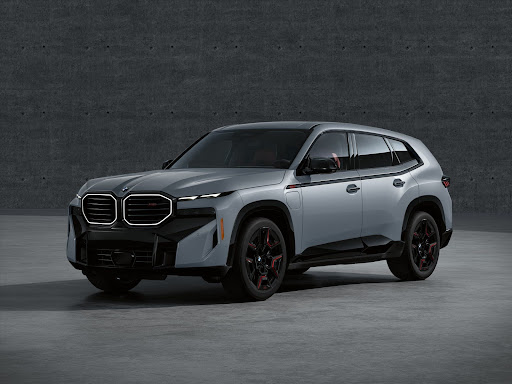When it comes to combining luxury, performance, and innovation, BMW engines are in a league of their own. Whether you’re a speed enthusiast craving power or someone who values top-tier efficiency, BMW engines have you covered. In this guide, we’ll dive into what makes BMW engines truly exceptional and spotlight some of the top performers in their lineup. Whether you’re in the market for a BMW or just curious about what’s under the hood, you’re about to discover why these engines set the standard in the automotive world.
The History of BMW Engines
BMW has a long and fascinating history when it comes to engines, one that has played a major role in shaping the brand’s reputation for luxury and performance. The story of BMW engines began long before the company even started making cars.
Early Beginnings: Aircraft Engines
BMW, which stands for Bayerische Motoren Werke, originally started as an aircraft engine manufacturer in 1916. During World War I, they became known for their high-performance airplane engines, such as the BMW IIIa, which was praised for its reliability and power at high altitudes. This focus on engineering excellence set the stage for BMW’s future in the automotive world.
Transition to Automobiles: The First BMW Car Engine
After the war, BMW shifted its focus from aircraft engines to motorcycle and automobile engines. In 1923, BMW introduced its first motorcycle, the R32, powered by a flat-twin boxer engine. This engine design, known for its balance and smooth operation, became a hallmark of BMW motorcycles.
In 1933, BMW produced its first car engine, the M78, a 1.2-liter inline-six engine. This engine powered the BMW 303, which was the company’s first car to feature the iconic kidney grille that BMW is known for today. The M78 was the beginning of BMW’s long tradition of inline-six engines, which would become a key part of the brand’s identity.
Post-War Innovation: The New Class
After World War II, BMW had to rebuild and refocus. In the 1960s, BMW introduced the “Neue Klasse” or “New Class” series, which included the BMW 1500. This car was powered by the M10 engine, a four-cylinder engine that was highly versatile and reliable. The M10 was so well-designed that it was later adapted for use in BMW’s Formula 1 racing engines, proving its incredible engineering.
The Birth of the M Division: High-Performance Engines
In the 1970s, BMW established its Motorsport division, known as BMW M, to create high-performance engines and cars. One of the first major successes was the M88 engine, a 3.5-liter inline-six that powered the BMW M1, the brand’s first supercar. The M88 set new standards for performance and was the foundation for many legendary BMW engines that followed.
Modern Era: Turbocharging and Efficient Dynamics
As environmental concerns grew, BMW began focusing on making their engines more efficient without sacrificing performance. In the 2000s, BMW introduced turbocharging across its engine lineup, starting with the N54 twin-turbo inline-six. Turbocharging allowed BMW to maintain high performance while improving fuel efficiency.
BMW also developed its EfficientDynamics program, which included technologies like Auto Start-Stop, Brake Energy Regeneration, and lightweight construction to further enhance efficiency. This combination of performance and eco-friendliness has become a key feature of modern BMW engines.
Today: A Legacy of Innovation
Today, BMW continues to innovate with engines that balance power, efficiency, and environmental responsibility. From the latest turbocharged inline-six engines to the powerful V8s found in their M models, BMW engines are a blend of the brand’s rich history and cutting-edge technology.
BMW’s journey from aircraft engines to luxury car engines is a testament to the company’s dedication to engineering excellence. Each BMW engine is a piece of this history, designed to deliver the thrilling performance and reliability that have made BMW a leader in the automotive world.

What Makes BMW Engines Special?
BMW engines are packed with advanced technology that improves performance, efficiency, and reliability. Here are some key features that set BMW engines apart:
TwinPower Turbo Technology
One of BMW’s most important advancements is TwinPower Turbo technology. This system uses turbochargers, direct fuel injection, and variable valve timing to get the most power from the engine while using less fuel. The result is quick acceleration and smooth power delivery, no matter how fast you’re going.
EfficientDynamics
BMW’s EfficientDynamics is all about reducing fuel consumption and emissions while keeping performance high. This includes features like Auto Start-Stop, which turns off the engine when you’re stopped, and Brake Energy Regeneration, which captures energy when you brake. These technologies help BMW engines perform at their best while being more fuel-efficient.
Valvetronic and Double VANOS
Valvetronic is BMW’s system for controlling the intake valve lift, which improves engine performance at different speeds. When combined with Double VANOS, which adjusts the timing of the intake and exhaust valves, these systems help the engine deliver more power, use less fuel, and produce fewer emissions.

The Best BMW Engines: Top Performers
BMW has a reputation for crafting some of the finest engines in the automotive world. These engines are known for their exceptional performance, reliability, and innovative design. Let’s dive deeper into some of the best BMW engines that have made a significant impact, answering questions you might have along the way.
The S54 Inline-Six: The Heart of the E46 M3
The S54 3.2-liter inline-six engine, found in the legendary E46 M3, is often hailed as one of BMW’s finest achievements. But why is this engine so special? What makes it stand out in the history of BMW engines?
High-Revving Performance: One of the key features of the S54 engine is its high-revving nature. It produces 333 horsepower and has a redline of 8,000 rpm, which means it can rev higher and faster than most engines in its class. This high-revving ability is what gives the S54 its thrilling performance, making the E46 M3 a joy to drive, especially for those who love to push their car to its limits.
Naturally Aspirated Design: Unlike many modern engines that rely on turbochargers to boost power, the S54 is naturally aspirated. This means it doesn’t use a turbocharger or supercharger to force more air into the engine. Instead, it relies on its engineering to produce power, which results in a more linear and predictable power delivery. Drivers often describe this as a more “pure” driving experience.
Durability and Longevity: Another aspect that sets the S54 apart is its durability. BMW engineered this engine with high-quality materials and precise manufacturing techniques, ensuring that it could withstand the stress of high-rev driving. Many E46 M3s with S54 engines are still running strong today, proving the engine’s long-term reliability.
Common Questions About the S54 Engine:
- Is the S54 engine expensive to maintain? Yes, the S54 engine can be costly to maintain, especially as the car ages. However, many enthusiasts believe the driving experience it offers is worth the investment.
- How does the S54 compare to modern turbocharged engines? While modern turbocharged engines often produce more power and torque, many purists prefer the naturally aspirated nature of the S54 for its more linear power delivery and high-revving character.
The N54 Twin-Turbo Inline-Six: A Game Changer
The N54 engine marked a new era for BMW as their first widely produced turbocharged inline-six. Found in models like the 335i and 135i, the N54 engine quickly became a favorite among enthusiasts. But what exactly makes the N54 engine so revolutionary?
Twin-Turbo Setup: The N54 engine features a twin-turbo setup, which means it has two turbochargers working together to boost power. This setup allows the engine to deliver 300 horsepower and 300 lb-ft of torque, providing strong acceleration and a wide powerband. This makes the N54 engine incredibly responsive, with minimal turbo lag, meaning the power is available almost instantly when you press the gas pedal.
Tuning Potential: One of the reasons the N54 is so beloved is its tuning potential. With just a few modifications, the N54 can easily produce much more power than its factory settings. Enthusiasts have been known to push this engine well beyond 400 horsepower with relative ease, making it a popular choice for those looking to modify their BMW for more performance.
Reliability Concerns: While the N54 is a powerful and tunable engine, it’s also known for some reliability issues. Common problems include high-pressure fuel pump failures, turbocharger wastegate rattle, and injector issues. However, many of these problems can be managed with regular maintenance and, for many owners, the performance benefits outweigh the potential downsides.
Common Questions About the N54 Engine:
- Is the N54 engine reliable? The N54 engine is powerful and offers great tuning potential, but it does have some known reliability issues. Regular maintenance is key to keeping it running smoothly.
- Why is the N54 engine popular among tuners? The N54 engine is popular because it can handle significant power increases with relatively simple modifications, making it a favorite among performance enthusiasts.
The S63 V8: Powering the M5 and M8
The S63 engine is a 4.4-liter twin-turbo V8 that powers some of BMW’s most powerful models, including the M5 and M8. This engine is a marvel of modern engineering, delivering incredible power and performance. But what makes the S63 engine so powerful, and why is it considered one of the best?
Massive Power Output: The S63 engine produces between 600 and 617 horsepower, depending on the model. This makes it one of the most powerful engines BMW has ever produced. The twin-turbo setup ensures that power is delivered smoothly and consistently, making the M5 and M8 some of the fastest cars in their class.
Advanced Cooling and Lubrication Systems: To handle the immense power and heat generated by the twin turbos, the S63 engine features advanced cooling and lubrication systems. These systems ensure that the engine operates efficiently, even under extreme conditions, such as high-speed driving on a track.
Precision Engineering: The S63 engine benefits from BMW’s extensive experience in motorsport. It’s built with precision engineering and high-quality materials, ensuring that it can handle the stress of high-performance driving. This attention to detail makes the S63 not only powerful but also reliable.
Common Questions About the S63 Engine:
- How does the S63 engine perform in everyday driving? Despite its immense power, the S63 engine is surprisingly manageable in everyday driving. This is thanks to its smooth power delivery and advanced technology.
- Is the S63 engine suitable for track use? Absolutely. The S63 engine is designed to handle the rigors of track driving, with advanced cooling and lubrication systems to keep it performing at its best.
The B58 Inline-Six: Modern Efficiency Meets Performance
The B58 engine is part of BMW’s latest generation of engines and represents a perfect balance of performance and efficiency. Found in models like the 540i and Z4 M40i, the B58 has quickly gained a reputation as one of BMW’s best engines. But what exactly makes the B58 engine so special?
Turbocharged Efficiency: The B58 engine is a 3.0-liter inline-six with a single twin-scroll turbocharger. This setup allows it to produce up to 382 horsepower while maintaining excellent fuel efficiency. The engine is designed to deliver power smoothly, making it ideal for both spirited driving and everyday use.
Modular Design: The B58 engine is part of BMW’s modular engine family, which means it shares many components with other engines in the lineup. This modular approach improves reliability and makes the engine more efficient to produce, while also allowing for easier maintenance and repairs.
Award-Winning Performance: The B58 engine has won numerous awards for its performance and efficiency. It’s been praised for its smooth operation, reliability, and the way it combines power with fuel economy. For drivers looking for a versatile engine that excels in a variety of driving situations, the B58 is a top choice.
Common Questions About the B58 Engine:
- How does the B58 engine compare to previous BMW engines? The B58 is more efficient and offers better performance than many of its predecessors, thanks to its modern design and advanced technology.
- Is the B58 engine reliable? Yes, the B58 engine is known for its reliability, especially when compared to earlier turbocharged engines like the N54.
BMW has a long history of engineering some of the best engines in the automotive industry. From the high-revving S54 to the powerful S63 and the efficient B58, each engine represents the pinnacle of BMW’s engineering prowess. Whether you’re looking for raw power, tuning potential, or a balance of performance and efficiency, BMW has an engine that meets your needs.
Why BMW Engines Are a Cut Above the Rest
BMW engines are not just about raw power—they’re meticulously crafted to deliver an exceptional driving experience. Whether you’re talking about the smooth precision of the inline-six engines, the immense power of the V8s, or the efficiency of modern turbocharged engines, BMW’s engineering stands out for its blend of power, refinement, and cutting-edge technology.
Precision Engineering and Innovative Design
One of the hallmarks of BMW engines is their precision engineering. Take the BMW inline-six engines, for example. This engine configuration has been a BMW signature for decades due to its perfect balance and smooth operation. The inline-six design allows for fewer moving parts compared to a V6, which reduces vibration and enhances reliability. This is why BMW has stuck with this configuration in many of their most iconic models, such as the 3 Series and 5 Series.
Advanced Materials and Technology
BMW is known for using advanced materials in their engines, such as lightweight aluminum and magnesium. These materials reduce the overall weight of the engine, which improves fuel efficiency and handling. For example, the BMW B58 engine, which powers models like the 340i and the Z4, features an aluminum block with a closed-deck design, which provides greater strength and durability, especially under high pressure.
Turbocharging and EfficientDynamics
Modern BMW engines often feature turbocharging, which boosts power without sacrificing fuel efficiency. The BMW N55 engine, for instance, was one of the first mass-produced engines to use a twin-scroll turbocharger. This design improves the efficiency of the turbocharging process by separating the exhaust pulses, reducing turbo lag, and providing a more immediate response when you press the accelerator.
BMW’s EfficientDynamics program is another reason why their engines are so highly regarded. This initiative includes features like Auto Start-Stop, which automatically turns off the engine when the car is idling, and Brake Energy Regeneration, which captures energy during braking to recharge the battery. These technologies help BMW engines maintain high performance while being more eco-friendly.
Extensive Testing and Reliability
Before a BMW engine hits the market, it undergoes extensive testing. BMW conducts rigorous durability tests, including high-speed runs, extreme temperature tests, and prolonged operation at maximum load. For example, BMW engines are often tested in extreme conditions, from the scorching heat of the desert to the freezing cold of the Arctic, to ensure they perform reliably in any environment.
This meticulous testing process is one reason BMW engines are known for their long-term reliability. Many BMW engines, such as the S54 inline-six or the N54 twin-turbo, have earned reputations for being able to deliver high performance over hundreds of thousands of miles, as long as they are properly maintained.
Conclusion: Discover the Power of BMW Engines
In the world of luxury cars, BMW engines are masterpieces of engineering. From the iconic inline-six engines of the past to today’s powerful and efficient turbocharged engines, BMW continues to lead the way in engine design.
Whether you’re looking to buy a new BMW or just appreciate top-notch engineering, exploring BMW engines gives you a clear idea of what makes this brand special. Ready to experience the power and innovation of BMW engines for yourself? Contact us to learn more about the latest BMW models and find the perfect engine that matches your driving style.






